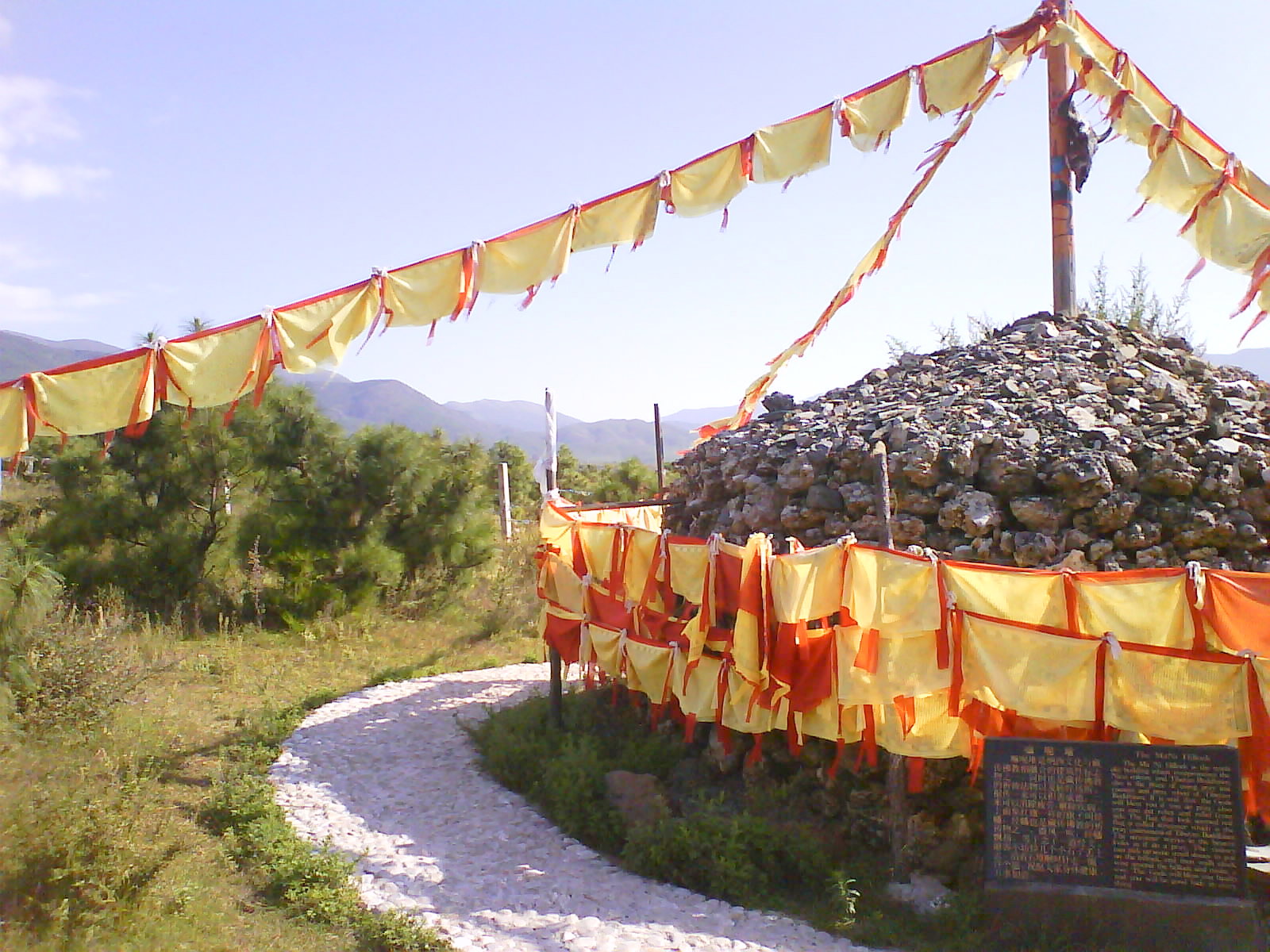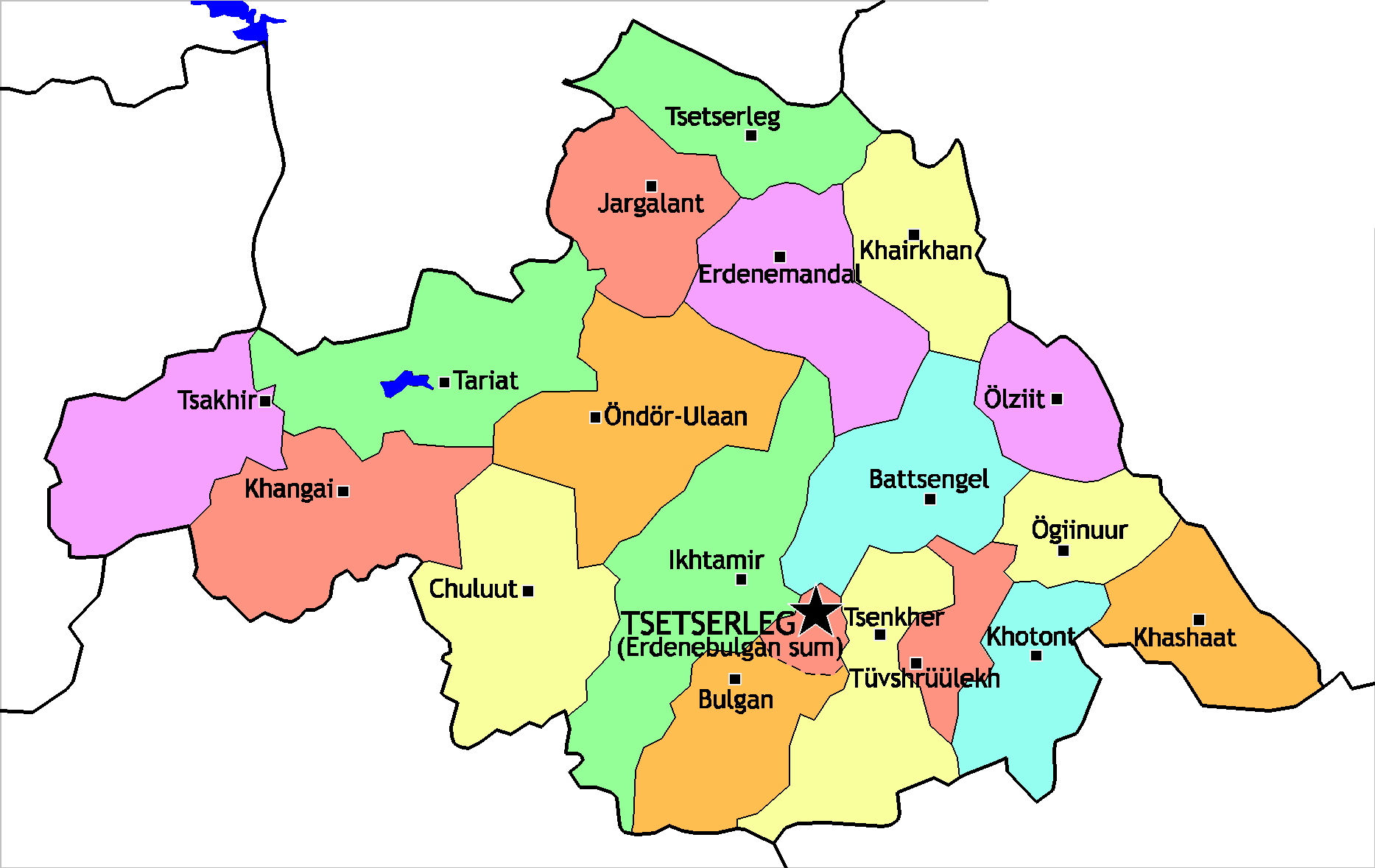|
Tsagaan-Ovoo, Dornod
Tsagaan-Ovoo ( mn, Цагаан-Овоо, White ovoo) is a sum (district) of Dornod Province in eastern Mongolia Mongolia; Mongolian script: , , ; lit. "Mongol Nation" or "State of Mongolia" () is a landlocked country in East Asia, bordered by Russia to the north and China to the south. It covers an area of , with a population of just 3.3 million, .... In 2009, its population was 3,696. References Districts of Dornod Province {{Mongolia-geo-stub ...[...More Info...] [...Related Items...] OR: [Wikipedia] [Google] [Baidu] |
Districts Of Mongolia
A district ( mn, сум, , , ; "arrow"), is a second level administrative subdivision of Mongolia. The 21 Provinces of Mongolia are divided into 331 districts.Montsame News Agency. ''Mongolia''. 2006, Foreign Service office of Montsame News Agency, , p. 46 On average, each district administers a territory of with about 5,000 inhabitants, primarily nomadic herders. Its total revenue is 120 million Tögrög, 90% of which comes from national subsidies. Each district is again subdivided into ''bags'' (brigades; sometimes spelled ''baghs''). Most bags are of an entirely virtual nature. Their purpose is to sort the families of nomads in the district into groups, without a permanent human settlement. Officially, and occasionally on maps, many district seats (sum centers) bear a name different from that of the district. However, in practice the district seat (sum center) is most often referred to under the name of the district, to the point of the official name of the district se ... [...More Info...] [...Related Items...] OR: [Wikipedia] [Google] [Baidu] |
Countries Of The World
The following is a list providing an overview of sovereign states around the world with information on their status and recognition of their sovereignty. The 206 listed states can be divided into three categories based on membership within the United Nations System: 193 member states of the United Nations, UN member states, 2 United Nations General Assembly observers#Present non-member observers, UN General Assembly non-member observer states, and 11 other states. The ''sovereignty dispute'' column indicates states having undisputed sovereignty (188 states, of which there are 187 UN member states and 1 UN General Assembly non-member observer state), states having disputed sovereignty (16 states, of which there are 6 UN member states, 1 UN General Assembly non-member observer state, and 9 de facto states), and states having a political status of the Cook Islands and Niue, special political status (2 states, both in associated state, free association with New Zealand). Compi ... [...More Info...] [...Related Items...] OR: [Wikipedia] [Google] [Baidu] |
Mongolia
Mongolia; Mongolian script: , , ; lit. "Mongol Nation" or "State of Mongolia" () is a landlocked country in East Asia, bordered by Russia to the north and China to the south. It covers an area of , with a population of just 3.3 million, making it the world's most sparsely populated sovereign nation. Mongolia is the world's largest landlocked country that does not border a closed sea, and much of its area is covered by grassy steppe, with mountains to the north and west and the Gobi Desert to the south. Ulaanbaatar, the capital and largest city, is home to roughly half of the country's population. The territory of modern-day Mongolia has been ruled by various nomadic empires, including the Xiongnu, the Xianbei, the Rouran, the First Turkic Khaganate, and others. In 1206, Genghis Khan founded the Mongol Empire, which became the largest contiguous land empire in history. His grandson Kublai Khan conquered China proper and established the Yuan dynasty. After the co ... [...More Info...] [...Related Items...] OR: [Wikipedia] [Google] [Baidu] |
Provinces Of Mongolia
A province is almost always an administrative division within a country or state. The term derives from the ancient Roman ''provincia'', which was the major territorial and administrative unit of the Roman Empire's territorial possessions outside Italy. The term ''province'' has since been adopted by many countries. In some countries with no actual provinces, "the provinces" is a metaphorical term meaning "outside the capital city". While some provinces were produced artificially by colonial powers, others were formed around local groups with their own ethnic identities. Many have their own powers independent of central or federal authority, especially in Canada and Pakistan. In other countries, like China or France, provinces are the creation of central government, with very little autonomy. Etymology The English word ''province'' is attested since about 1330 and derives from the 13th-century Old French , which itself comes from the Latin word , which referred to the sphere ... [...More Info...] [...Related Items...] OR: [Wikipedia] [Google] [Baidu] |
Dornod Province
Dornod ( mn, Дорнод, ; "East") is the easternmost of the 21 aimags (provinces) of Mongolia. Its capital is Choibalsan. Population Halh are the ethnic majority of the Dornod aimag, but Buryat ethnic group is 22.8% of population total (17,196 in 2000, census) concentrated in the north-eastern sums of Dashbalbar, Tsagaan-Ovoo, Bayan-Uul, Bayandun and aimag capital Choibalsan. There are several small ethnic groups: Barga (populates Gurvanzagal and Hölönbuir sums), Uzemchin (are present in Sergelen, Bayantümen, Bulgan, Chuluunhoroot sums and Choibalsan city), Hamnigan ethnic group ( Bayan-Uul and Tsagaan-Ovoo sums). History The aimag was created during the administrative reorganisation of 1941 with the name of ''Choibalsan'', after the communist leader Khorloogiin Choibalsan. The capital, which previously had been called ''Bayan Tümen'', also received the name Choibalsan. In 1963, the aimag was given the current name ''Dornod''. Transportation The ... [...More Info...] [...Related Items...] OR: [Wikipedia] [Google] [Baidu] |
Ovoo
Ovoo, oboo, or obo ( mn, овоо, bua, обоо, kjh, обаа, Traditional Mongol: , "heap"; Chinese: 敖包 ''áobāo'', lit. "magnificent bundle .e. shrine) are sacred stone heaps used as altars or shrines in Mongolian folk religious practice and in the religion of other Mongolic peoples. They are usually made from rocks with wood. Ovoos are often found at the top of mountains and in high places, like mountain passes. In modern times, some of them have developed into large and elaborate structures, becoming more like temples than simple altars. They serve mainly as sites for the worship of Heaven and lesser gods led by shamans and kins' elders, but also for Buddhist ceremonies. In custom When travelling, it is the custom to stop and circle an ovoo three times, moving clockwise, in order to have a safer journey. Usually, rocks are picked up from the ground and added to the pile. Also, one may leave offerings in the form of sweets, money, milk, or vodka. If one is in a h ... [...More Info...] [...Related Items...] OR: [Wikipedia] [Google] [Baidu] |
Sums Of Mongolia
A district ( mn, сум, , , ; "arrow"), is a second level administrative subdivision of Mongolia. The 21 Provinces of Mongolia are divided into 331 districts.Montsame News Agency. ''Mongolia''. 2006, Foreign Service office of Montsame News Agency, , p. 46 On average, each district administers a territory of with about 5,000 inhabitants, primarily nomadic herders. Its total revenue is 120 million Mongolian tögrög, Tögrög, 90% of which comes from national subsidies. Each district is again subdivided into ''bags'' (brigades; sometimes spelled ''baghs''). Most bags are of an entirely virtual nature. Their purpose is to sort the families of nomads in the district into groups, without a permanent human settlement. Officially, and occasionally on maps, many district seats (sum centers) bear a name different from that of the district. However, in practice the district seat (sum center) is most often referred to under the name of the district, to the point of the official name ... [...More Info...] [...Related Items...] OR: [Wikipedia] [Google] [Baidu] |





